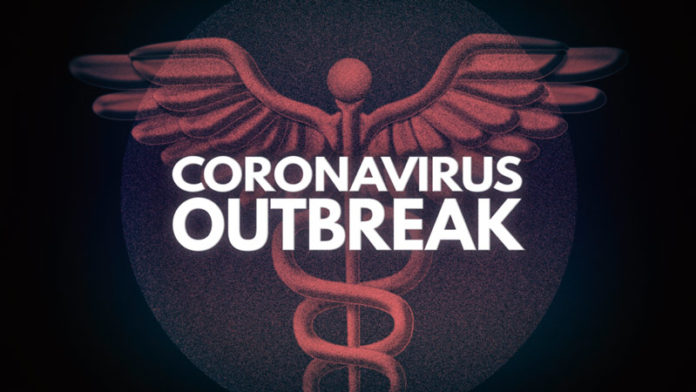The refrain from Santa Clara County officials at a March 31 press conference was loud and clear: local social distancing and staying home in the face of the COVID-19 pandemic is saving lives.
Still, authorities said more time is needed to keep the spread of the illness minimal and prevent hospitals with limited space and equipment from being flooded with patients. That’s why Santa Clara County and six other Bay Area jurisdictions issued a new directive extending the current shelter-at-home requirements to May 3.
“The goal is to decrease, to the greatest extent possible, the average number of contacts that each of us has with each other every day,” Santa Clara County Public Health Officer Sara Cody said at the March 31 press conference at the county building in San Jose. “Each unnecessary contact increases the chance the virus may spread from one person to another.”
Cody acknowledged that since the previous stay-home order was enacted March 17, requiring social distancing and the closure of all non-essential business, the county has begun to “slow the spread” of the COVID-19 illness.
“But I say that very, very cautiously,” Cody said. The stay-home order and social distancing guidelines have “not (been) in place long enough, so we need to keep at it.”
The previous stay-home order was set to expire April 7.
As of March 31, public health officials have confirmed 890 cases of COVID-19 in Santa Clara County, Cody said. Thirty of those patients have died with the illness.
“Santa Clara County remains the epicenter of this outbreak in the Bay Area,” Cody said. “There are some indications that some actions are beginning to slow the spread. The sacrifices everybody has made have given hospitals valuable time to prepare for an expected influx of patients. However, more time is needed.”
Cody added that county hospitals are beginning to fill with COVID-19 patients but are not at capacity yet. A makeshift hospital established at the Santa Clara Convention Center—with the help of federal authorities—is likely to start seeing COVID-19 patients at the beginning of next week.
The updated stay-home order also adds further regulations to practice and enforce limited physical contact among residents. These include a requirement that all “essential” businesses that remain open must post and implement a “social distancing protocol” for employees and customers.
“Social distancing is now mandatory when performing essential activities,” County Counsel James Williams said.
Businesses that typically perform both essential and non-essential commerce are now required to “scale down” the non-essential side through May 3, Williams added. And most construction activity is now prohibited as non-essential business.
Santa Clara County District Attorney Jeff Rosen gave a warning to non-essential businesses that are still open in violation of stay-home orders. His office has responded to about 2,000 complaints from citizens reporting non-essential businesses staying open, with investigators responding to some of those reports. Rosen noted the “vast majority” of businesses throughout Santa Clara County are in compliance with the health orders.
Rosen added a “thank you” to the businesses that have remained closed throughout the stay-home directive.
“You are saving lives,” he said. “We may never know how many or who. It is often hard to measure the results of a good deed. But your good deed, your sacrifice, your civic duty will be measured in saved lives.”
County preparedness
County Executive Jeff Smith gave an update on the preparedness of the county’s 11 hospitals—including Saint Louise Regional Hospital in Gilroy—to deal with a potential surge of COVID-19 patients. Such a surge has not happened yet in Santa Clara County, but all county hospitals have “surge plans” in place.
Overall, the county hospitals have 611 ventilators, about 400 of which are currently not being used, Smith said. Private and public hospitals in the county are collectively anticipating an incoming shipment of 500 new ventilators in the coming weeks.
County hospitals have a total of 1,475 beds, with about 300 Intensive Care Unit beds open now, Smith added. There are currently 152 confirmed COVID-19 patients in county hospitals, plus another 90 who are “suspected of having COVID,” Smith said. About 56 of the confirmed COVID-19 patients are in ICU beds.
Smith also explained the lag period between when directives such as the stay-home order are put in place and when they start showing results in the spread of the disease. Experts have determined the incubation period for COVID-19 is about two weeks, during which time a patient is capable of spreading the illness to others without knowing they are ill. Furthermore, about 80 percent of those who contract COVID-19 show little or no symptoms while carrying the virus.
“People who were exposed and contracted COVID-19 two weeks ago will be getting ill, and we’ll see how that affects the health system,” Smith said March 31. “Also we’ll be able to see how effectively the social distancing has worked” in local communities.
County staff also reported that starting April 1, they will be giving a daily briefing at 10am on the local COVID-19 situation and its impacts. The briefings will be broadcast on various county social media channels.
County health officials have cautioned that the number of COVID-19 cases is likely much higher than the official statistics suggest, due to the lack of testing. “Because of limited testing capacity through the Public Health Laboratory, the number of cases that we detect through testing represent only a small portion of the total number of likely cases in the county,” reads a March 30 statement from the county.













